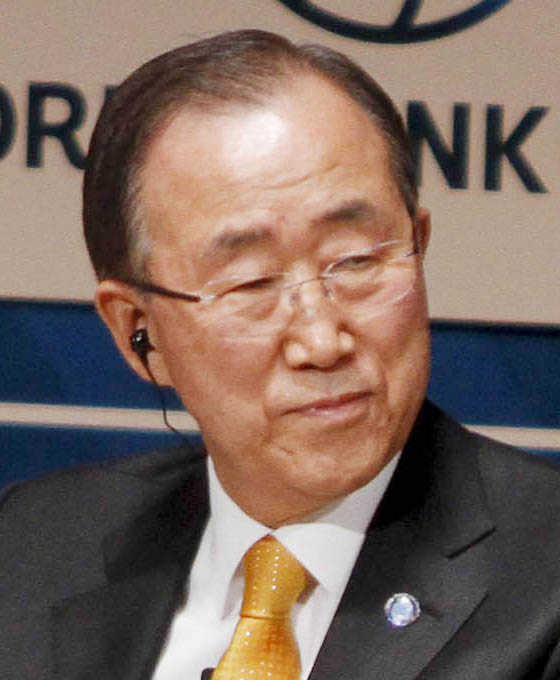
UN Secretary-General Ban Ki-moon. Reuters
United Nations, November 29
On the eve of climate summit in Paris, UN chief Ban Ki-moon has asked developed nations to keep their pledge to provide $100 billion a year by 2020 to support concrete mitigation actions by the developing countries as he underlined the need for a durable universal deal to address rising green house gas emissions.
“I expect the world to conclude a universal climate agreement in Paris. The agreement must be durable – it should provide a comprehensive, long-term vision of the opportunities created by low-emission, climate-resilient development and flexible. It must be rooted in solidarity,” The UN Secretary-General told PTI ahead of the Climate Change Summit due to begin in Paris tomorrow.
“Developed countries must keep their pledge to provide $100 billion a year by 2020. All concerned—both developed and developing countries—must be part of a consultative, politically credible process for defining the $100 billion trajectory,” he said, adding that the Paris agreement must provide for credible means of implementation, including climate financing.
The industrialised nations had earlier committed to long term financing support in form of a green climate fund worth $100 billion a year to support concrete mitigation actions by the developing countries.
In its Intended Nationally Determined Contribution (INDC), India has offered to slash its emissions per-unit of gross domestic product figures to 35 per cent by 2030. It has, however, warned that international efforts to arrive at a climate deal will not succeed if they are “laced” with “persistent attempts” to dislodge the balance of responsibilities between developed and developing countries.
Ban said that the climate agreement “must strike a balance between the leadership role of developed countries and the increasing responsibility of developing countries to take action in line with their capabilities and respective levels of development.”
“But I think the question overlooks the fact that there are viable sustainable development paths that are consistent with moving toward a low-carbon economy,” Ban said.
Ban noted that India has embarked on major projects to scale up investments in solar energy, giving the opportunity to more people to benefit from access to clean energy than ever before.
“Taking climate action is not about accepting sacrifice; rather, it is about pursuing opportunities to build sustainable and competitive economies,” the UN Chief said.
A critical issue, climate finance, has been described as being key to the success of the Paris summit.
The UN chief said while there has been some movement on the issue of climate finance, there is still a long way to cover.
“We see movement in the right direction but we are not yet there. I am continuing to urge leaders to do more in this respect,” he said.
The United Nations climate change conference, widely known as Conference of Parties (CoP 21) will take place from November 30 to December 11 in Paris and will aim to achieve a legally binding and universal agreement on climate, with the aim of keeping global warming below 2 degree Celsius. More than 120 leaders will participate in the 21st Meeting of the States Parties to the UN Framework Convention on Climate Change.
Ban said he expects the agreement to be credible in its response to the urgency of climate change, including by providing the financial and other means to support this response.
The agreement must also send a clear signal to the private sector that the low-carbon transformation of the global economy is inevitable, beneficial, and already under way.
“It must also help accelerate investments in clean energy and spur a global, low-carbon transformation well before the end of the century that is consistent with a below two degrees Celsius pathway,” Ban said. — PTI



























